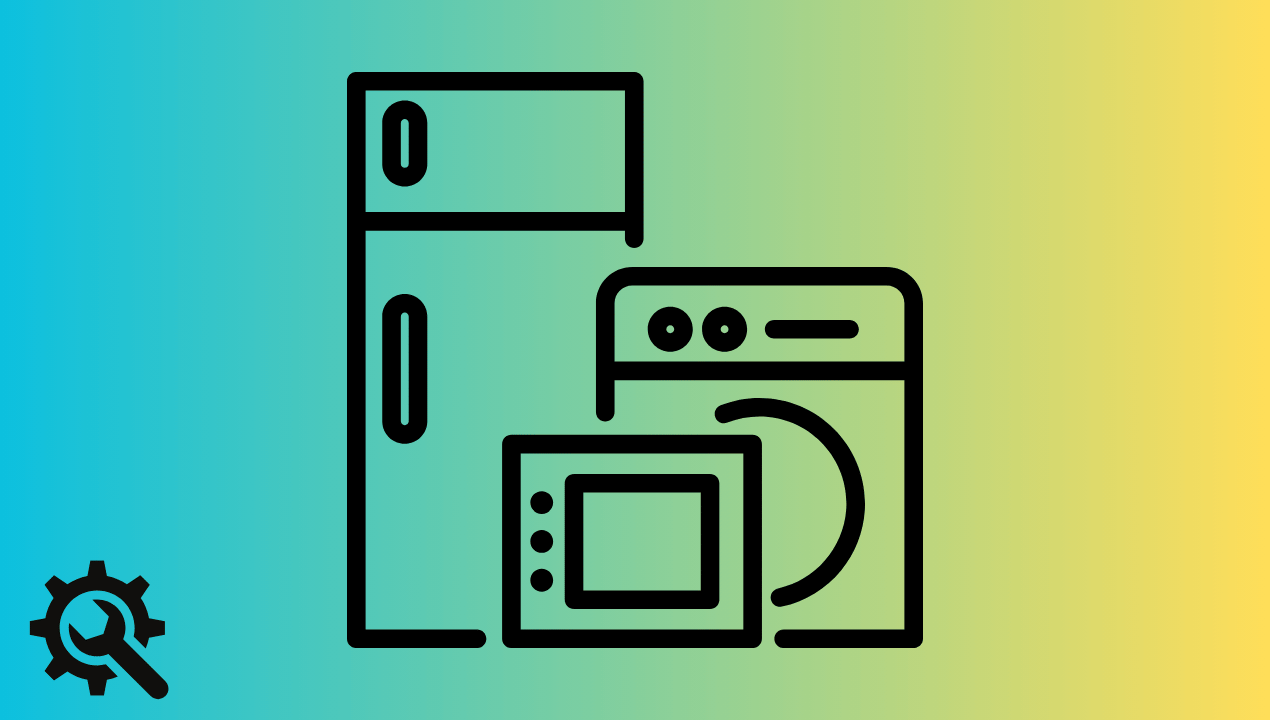Walk into any busy restaurant on a Friday night, a hotel on a holiday weekend, or even a packed coworking space on a summer afternoon, and one thing is quietly working in the background. Appliances. Coolers, ice machines, ovens, dishwashers, washers, dryers, HVAC units, fridges in the staff kitchen. When one of them quits, the entire operation feels it. In this essential service guide, you’ll learn why proactive residential & commercial appliance repair saves your business thousands.
Most owners only think about repair when something breaks. By that point, the damage is already done. Food spoils, guests complain, staff panic, and the emergency repair bill lands on your desk. Proactive appliance repair flips that script. Instead of waiting for failure, you treat residential and commercial appliances as critical assets like Commercial Freezers Repair deserve a plan.
Done right, that plan can literally save your business thousands every year in repair costs, downtime, energy bills, and lost revenue.
The Hidden Cost Of Waiting For Appliances To Fail: Residential Commercial Appliance Repair
On paper, waiting until something breaks looks cheaper. There is no line item for maintenance. In real life, reactive repair comes with layers of hidden costs that do not show up until it is too late.
There is the obvious bill for emergency service. Same day or after hours visits usually cost far more than a scheduled weekday call, and you often pay extra for rush parts and overtime labor. There is also the cost of disruption. A walk in cooler that goes down in a restaurant can mean hundreds or even thousands in spoiled inventory before anyone notices. A broken commercial dryer in a hotel means delayed check ins and refunds. A failed office fridge or break room dishwasher does not ruin your day, but it chips away at employee satisfaction.
On top of that, reactive repairs often shorten the overall life of the equipment. When parts are pushed to failure, they can damage connected components, turn simple fixes into major jobs, and force premature replacement. That new commercial range or walk in is not cheap.
Studies on energy use also show that poorly maintained appliances draw more power and waste more resources. Articles on reducing electricity consumption consistently highlight regular maintenance as one of the most effective ways to keep appliances efficient and bills under control.
All of these effects combine into one big number. You do not just pay for one late night repair visit. You pay through higher utilities, lost stock, overtime for staff scrambling around the problem, and customers who quietly walk away with appliance repair that saves business money.
How Proactive Appliance Repair Works For Homes And Businesses
Proactive appliance repair is a simple idea. You schedule inspection, cleaning, and minor fixes on a regular basis instead of waiting for appliances to fail. The technician looks for early warning signs, replaces cheap parts before they cause big damage, and keeps everything operating within manufacturer specifications.
For residential settings, that can mean seasonal checks on refrigerators, washers, dryers, stoves, and HVAC units. Homeowners get fewer surprise breakdowns, better energy efficiency, and safer operation. Landlords with several units benefit even more, because they reduce urgent calls from tenants and avoid expensive last minute replacements with appliance repair that saves business money.
For commercial businesses, proactive repair feels a lot like preventive maintenance in a factory. Technicians follow a planned calendar for coolers, freezers, ovens, dishwashers, ice machines, laundry machines, and other critical gear. They clean coils, check seals, test safety systems, calibrate temperatures, and log everything. Visits can be grouped so that multiple appliances are serviced in a single trip, which cuts both time and call out costs.
In industrial environments, predictive maintenance programs that shift from reactive repairs to proactive, data driven maintenance have reported thirty to fifty percent reductions in unplanned downtime and up to twenty five percent savings in maintenance costs. The same logic applies on a smaller scale to busy kitchens, hotels, laundromats, and office buildings.
Five Ways Proactive Appliance Repair Saves You Thousands
Fewer Breakdowns And Less Emergency Downtime
The most obvious benefit is fewer “everything stops” moments. When a technician catches a worn belt, a failing fan motor, or a clogged drain line during a scheduled visit, it turns a future emergency into a small controlled repair.
For a restaurant, avoiding even one catastrophic cooler failure in a year can mean saving the entire cost of a maintenance plan in inventory alone. For a property manager, preventing repeated failures in a shared laundry room keeps tenants happy and reduces call volume. In both cases, the value is not only in the repair bill you avoid. It is in the revenue and goodwill you protect with appliance repair that saves business money.
Longer Appliance Lifespan And Slower Depreciation: Residential Commercial Appliance Repair
Appliances are capital assets. You expect them to pay for themselves over a number of years. That only happens if you actually get those years.
Proactive repair extends the life of everything from residential washing machines to commercial walk in freezers. Clean components run cooler. Lubricated parts experience less friction. Electrical connections checked and tightened are less likely to arc and fail. When you delay replacement by two or three years on multiple units, the savings become very real.
Think about a commercial kitchen that runs a ten thousand dollar range and a fifteen thousand dollar walk in cooler. If proactive maintenance helps each of those last an extra three years, you effectively spread their cost over a longer period. The result is lower annual depreciation and more predictable capital planning with appliance repair that saves business money.
Lower Energy Bills And Safer Operation with Appliance Repair that Saves Business Money
Dirty condenser coils, loose door gaskets, off balance drums, and partially blocked vents all share a trait. They force appliances to work harder than necessary, which means more energy use and more heat stress on components.
Guides on cutting energy consumption repeatedly point to regular maintenance of appliances and equipment as a straightforward way to reduce electricity costs while keeping performance steady.
For businesses that run many appliances, this adds up quickly. A supermarket with a line of coolers, an office tower with multiple rooftop units, or a laundromat with banks of washers and dryers can see monthly savings when systems run at peak efficiency. At the same time, properly maintained appliances are safer. They are less likely to overheat, leak water or gas, or create electrical hazards that could endanger staff and customers.
Stronger Customer Experience And Reputation: Residential Commercial Appliance Repair
Customers rarely think about your appliances until they fail in front of them. A melted dessert display, a broken coffee machine, or noisy, unreliable laundry equipment in a hotel all send the same message, even if no one says it out loud. This place does not have its act together.
Proactive maintenance keeps the visible parts of your operation looking and feeling reliable. Fridges hold temperature, ice machines keep up with demand, dishwashers deliver clean plates on time, and HVAC systems quietly keep spaces comfortable. That stability shows up in online reviews, repeat visits, and referrals.
For residential property managers, working appliances reduce move out complaints and improve tenant retention. For small businesses that depend on word of mouth, that reputation boost can be worth far more than the cost of maintenance visits.
Tax, Warranty, And Insurance Advantages Essential Repair Service
There are also quiet financial benefits that proactive repair unlocks.
Manufacturers often require proof of regular maintenance to honor extended warranties on commercial equipment. If you can show service records, you are more likely to receive free or discounted repairs on covered failures instead of paying out of pocket. Insurers may look favorably on documented maintenance when setting premiums or evaluating claims after a major incident.
On the accounting side, a structured maintenance plan turns unpredictable repair spikes into steadier operating expenses. That helps with budgeting, cash flow planning, and in some regions can align with tax strategies around asset management. When you can forecast maintenance spend more accurately, you make better decisions about when to repair, when to refurbish, and when to replace.
Residential Commercial Appliance Repair Plans: What Actually Changes
Residential and commercial clients share the same basic goal. They want appliances that keep working without surprise failures. The difference lies in usage intensity, risk, and scheduling needs.
The table below compares how proactive appliance repair typically looks in each setting.
| Factor | Residential Appliances | Commercial Appliances |
|---|---|---|
| Usage Intensity | Moderate daily use with peaks at specific times, such as mornings and evenings | High and often continuous use during business hours, with heavier loads and more frequent cycles |
| Impact Of Failure | Inconvenience for family or tenants, occasional food spoilage, frustration | Immediate revenue loss, potential health code issues, refunds, reputation damage |
| Service Frequency | Seasonal or annual checks for major appliances, flexible timing | Monthly or quarterly visits for critical equipment, often outside peak hours to avoid disruption |
| Typical Service Window | Normal business hours, easy to reschedule | Early mornings, late evenings, or planned downtime slots to avoid operational impact |
| Common Savings | Lower repair bills over time, fewer urgent call outs, lower energy usage at home | Fewer emergency visits, reduced inventory loss, energy savings across many units, extended asset life |
| Documentation Needs | Simple service history for personal records or landlord use | Detailed logs for health inspections, warranty claims, insurance, and internal audits |
Looking at the table, you can see why proactive repair is often treated as optional for homeowners but essential for serious commercial operations. The money at stake is larger, the tolerance for downtime is smaller, and the need for documentation is higher.
What To Look For In A Proactive Appliance Repair Partner For an Essential Repair Service
Choosing the right partner is almost as important as choosing the plan itself. You are not just hiring someone to fix one broken fridge. You are building a long term relationship with a team that will see your operation up close.
A strong proactive appliance repair provider understands both residential and commercial realities. They should be comfortable scheduling early or late visits, coordinating access in multi unit properties, and working around customer traffic. They need experience with your specific brands and models, especially for specialized commercial equipment.
Ask how they structure maintenance plans, how detailed their inspection checklists are, and what kind of reporting you receive. Clear, readable reports with photos, notes, and recommendations turn each visit into a decision making tool. You want transparency on pricing, including how they handle emergency calls for clients on maintenance plans for an essential repair service.
It is also worth asking how they stay current with newer technologies. Smart appliances, connected monitoring, and AI driven diagnostics are becoming more common. Articles on AI in logistics and industrial operations show how predictive analytics can cut costs and downtime by spotting issues earlier than human technicians alone. A provider that understands these trends can adapt as your equipment gets smarter.
Simple Steps To Start A Proactive Maintenance Program This Quarter
If you have relied on reactive repair up to now, switching to a proactive approach may feel like a big project. In practice, you can start with a few straightforward steps and build from there.
Begin by taking inventory. List every major appliance across your home, properties, or business. Note age, model, serial number, and any past issues. This gives you a baseline and often reveals units that are already overdue for attention.
Next, classify appliances by criticality. For a restaurant, walk ins, line coolers, ovens, and dishwashers probably sit at the top. In addition, a small office, HVAC and shared kitchen appliances matter most. For a laundromat or hotel, washers and dryers are obviously critical. Start your proactive plan with the top tier and expand as you see results.
Then, invite one or two reputable service providers to inspect your setup and quote maintenance options. Compare not just price, but structure. Look at visit frequency, what is included in inspections, response times for urgent issues, and how they communicate findings.
Finally, commit to a trial period. Run a proactive plan for six or twelve months, track repair costs, emergency call outs, energy bills, and any disruption tied to appliances. For many businesses, the savings and stability become clear long before the first year ends.
Proactive Appliance Repair Is An Essential Service, Not A Luxury
When you add up all the parts, proactive residential and commercial appliance repair is less about keeping machines pretty and more about protecting the core of your business.
It keeps appliances running longer. It reduces surprise failures. Moreover, cuts energy waste. It keeps customers and tenants happy. So, it gives you cleaner books and fewer ugly surprises in your cash flow. Most importantly, it allows you to focus on running and growing your business instead of fighting the next crisis in the kitchen, laundry room, or mechanical room for essential repair service.
In a world where downtime and waste are more expensive than ever, treating appliance repair as an essential, proactive service is one of the simplest, smartest ways to save thousands over the life of your equipment.








